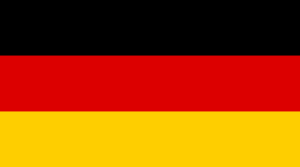 Loading…
Loading…
UNIT 5 THE FOUNDER OF TURKISH REPUBLIC : ATATÜRK
Word List ( Page 39 ) Atatürk’s Life
Atatürk’ün okuduğu okullar Atatürk’ün askeri rütbeleri / ünvanları
Şemsi Efendi School : Şemsi Efendi Okulu staff officer : kurmay albay
Military Middle School : Askeri Rüştiyesi colonel : albay
Military High School : Askeri Lise ( Askeri İdadisi) military attaché : askeri ateşe
Military Academy : Harbiye Harp Okulu general : general
General Staff College : Genel Kurmay Koleji Commander-in-Chief : Başkomutan
Marshal : Mareşal
Savaşlar Önemli kelimeler
Dardanelles campaign : Çanakkale Savaşı war : savaş battle : savaş ,mücadele,çatışma
War of Independence : Bağımsızlık Savaşı motherland : anavatan victory : zafer
Battle of Sakarya : Sakarya Savaşı freedom : özgürlük founder : kurucu
Battle of Dumlupınar : Dumlupınar Savaşı rank : sınıf,rütbe army : ordu
enter : girmek, kaydolmak national : ulusal hero : kahraman
graduate : mezun olmak commander : komutan president : Cumhurbaşkanı
found : kurmak declaration : deklarasyon,açıklama,beyanat
serve : hizmet etmek immortality : ölümsüzlük ultimate : son,nihai
land : karaya ayak basmak, karaya ulaşmak reform : yenilik
VERBS with their meanings and past forms
Turkish
Meaning
Verb Past form of the
Verb
Turkish Meaning Verb Past form of the
Verb
Girmek,
kaydolmak enter entered
olmak become became
Kurmak found founded vermek give gave
Mezun olmak graduate graduated İlan etmek declare declared
Hizmet etmek serve served ulaşmak,erişmek attain attained
Karaya varmak land landed modernleştirmek modernize modernize
Page 41 Atatürk’s Reforms
Political Reforms , Economical Reforms,Social Reforms, Legal Reforms, Educational Reforms
The Acceptance of Civil Law ( Civil Code ) : Medeni Kanunun kabulü (17th February 1926)
The Adoption of the New Turkish Alphabet : Yeni Türk Alfabesinin Kabulü ( 1st November, 1928 )
The Abolition of the Sultanate : Saltanatın kaldırılması ( 1st November, 1922)
The Surname Law : Soy adı Kanunu (21st June, 1934 )
The Hat (Clothing) Law : Şapka Kanunu (25th November,1925)
The Declaration of the Republic : Cumhuriyetin İlanı (29th October, 1923)
Önemli ifadeler / kelimeler
contemporary civilizations : muasır medeniyetler , çağdaş toplumlar
sovereignty : egemenlik
representative : temsilci
outlaw : yasaklamak,feshetmek, yürürlükten kaldırmak
Islamic polygamy : islama dayanan çok eşlilik
Civil marriage : tek eşlilik
Principles of Atatürk ( Atatürk’ün İlkeleri )
REPUBLICANISM ( CUMHURİYETÇİLİK )
- Kemalism recognizes only a republican regime for Turkey.
- In a republican regime the nation governs itself.
- Only the republican regime can represent the wishes of people.
- Because of this , Atatürk founded the Turkish Republic.
POPULISM ( HALKÇILIK ) - Kemalism is against class privileges and class distinction.
- According to Kemalism everybody is equal.
- The Kemalist reforms brought a revolutionary change in the status of women through the adoption of the
Civil Code. - Moreover , women received the right to vote in 1934.
SECULARISM ( LAİKLİK )
- Kemalist secularism means the seperation of state and religion.
- It also means the seperation of religion from educational, cultural and legal affairs.
- The abolishment of the Caliphate is one of the examples of secularism .
REFORMISM ( REVOLUTIONISM ) (INKILAPÇILIK)
This principle means Turkey made many reforms .
It means Turkey replaced traditional concepts with modern concepts.
The abolishment of the new Alphabet is one of the examples of reformism.
NATIONALISM ( MİLLİYETÇİLİK)
Nationalism is against the rule of dynasty.
According to Kemalist nationalism, the Turkish State is an indivisible whole with its territory and people.
Abolishment of Capitulations is an example of nationalism.
STATISM ( DEVLETÇİLİK)
In his statements and policies Atatürk said : “ Turkey should develop economically and technologically.”
In Statism , the state regulates the country’s general economical activity.
The state cooperates with the nation.
The Five-Year Development Plan is an example of Statism



Average Rating